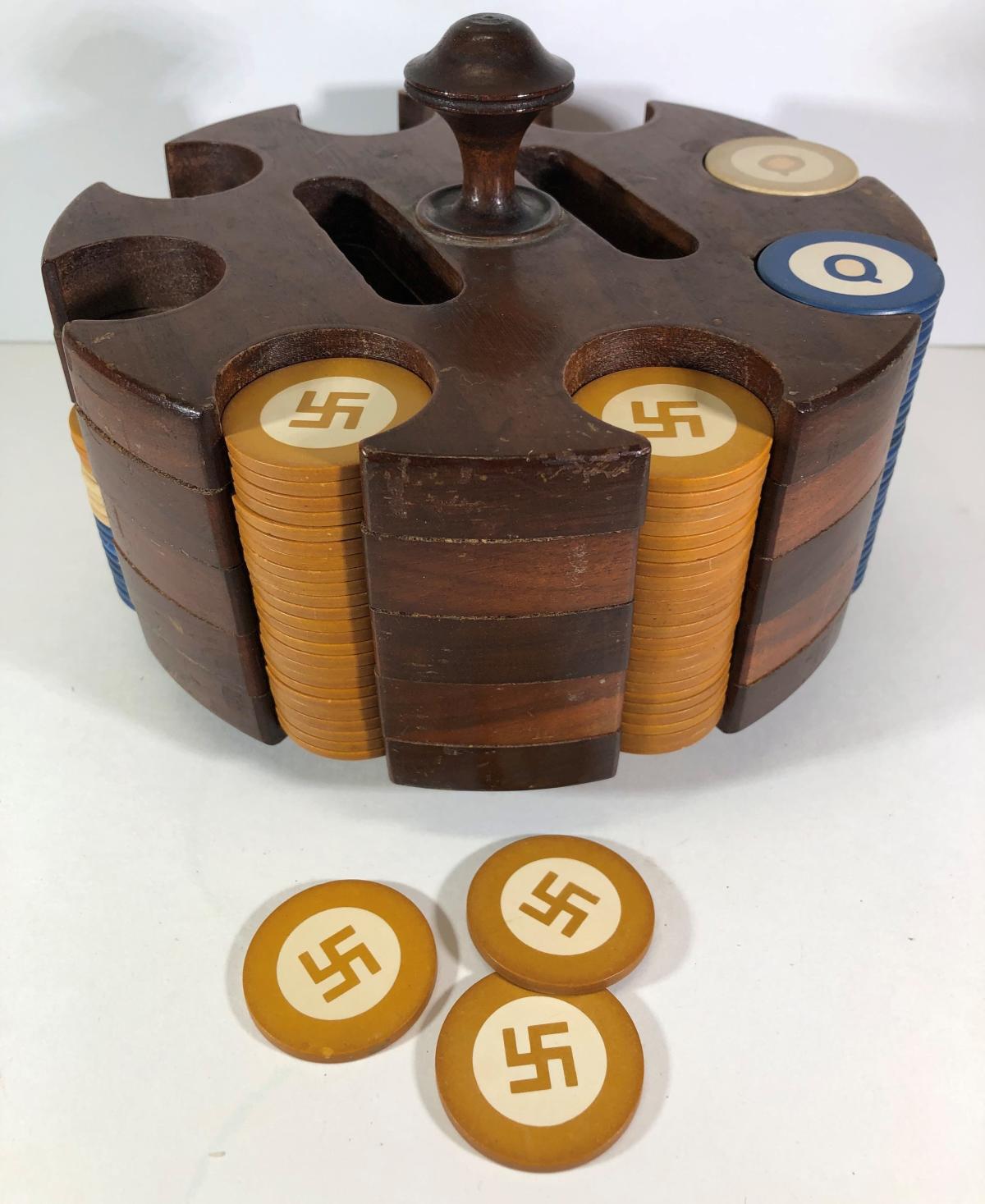Those of us who have watched too many Westerns over the years probably have an idealized version of the quintessential Wild West saloon. Rough-hewn wooden floors, a long bar lined with whiskey glasses, beautiful girls in fluffy dresses and poker tables full of men and their six-shooters.
Back then the ante was six bits or maybe a silver dollar. Now fast forward to modern Las Vegas, and the picture is a little different. Apart from the poker tables, connecting one to the other is quite a job. And since this will undoubtedly put a strain on my literary skills, let’s talk about their one similarity: poker. Or more specifically: poker chips.
Coincidentally, poker chips didn’t come onto the market until just before the 20th century. Before that, almost anything that was small and had value could be used as chips. Examples included gold nuggets, rings and jewelry, property deeds and even weapons.
Eventually, however, saloons trying to codify the game began creating tokens that represented different monetary values. The materials used depended on the region and the prosperity of the salon in question, but most were made of bone, clay, wood and sometimes ivory. Sizes ranged from rectangular to slightly fish-shaped, but eventually a round coin-like size became the preferred configuration.
As for the game itself, its closest predecessor was poque and pochen – French and German respectively – both of which evolved from a 16th-century Spanish card game called primero. The French brought poque to their American territories and the name was eventually anglicized to poker. By the time of the Civil War (1861-65), poker had become a popular five-card game played with a deck of 52 cards. In subsequent years, another version of poker developed, including the now famous Texas Hold ’em as the basis for the annual World Series of Poker.
Getting back to poker chips, the rise of the casino industry in the 20th century was largely responsible for poker chips becoming a collectible. Today there is a Casino Chip and Gaming Token Collectors Club that holds a well-attended convention in Las Vegas every year. Chips from small or defunct casinos are highly sought after, and not long ago a $5 chip from the Golden Goose casino traded hands for as much as $75,000.
Box sets are especially prized, as are the early mother-of-pearl chips often used in Asian casinos in the 1920s. Not surprisingly, casinos love it when you keep their poker chips because they get your money back. Limited edition poker chips, like those made specifically for tournaments, are also catnip for collectors.
Here in Southern California, casinos throughout the region all issue their own chips in a wide variety of colors and designs. Most casino gift shops sell them, as do antique galleries like ours.
Among the most infamous early chips are those made in the 1920s and marked with a swastika – then a Native American symbol of good luck and before that a Hindu religious sign representing prosperity and good luck. Interestingly, the right-facing swastika as appropriated by Nazi Germany is different from the left-facing sauvastika which has different meanings.
Anyway, the swastika poker chips sell for more, but don’t come close to a Geoffrey Parker set of 384 bejeweled chips that will set you back a whopping $7.5 million.
Sorry, but we’re really into that at the moment.
Mike Rivkin and his wife Linda are longtime residents of Rancho Mirage. He was an award-winning catalog publisher for many years and has written seven books and numerous articles. Now he is the owner of Antique Galleries of Palm Springs. His antiques column appears on Sunday in The Desert Sun. Would you like to ask Mike a question about antiques? Send him a message at info@silverfishpress.com.
This article originally appeared on Palm Springs Desert Sun: Antiques: Putting Your Chips on the Table Instead of in Your Pocket
